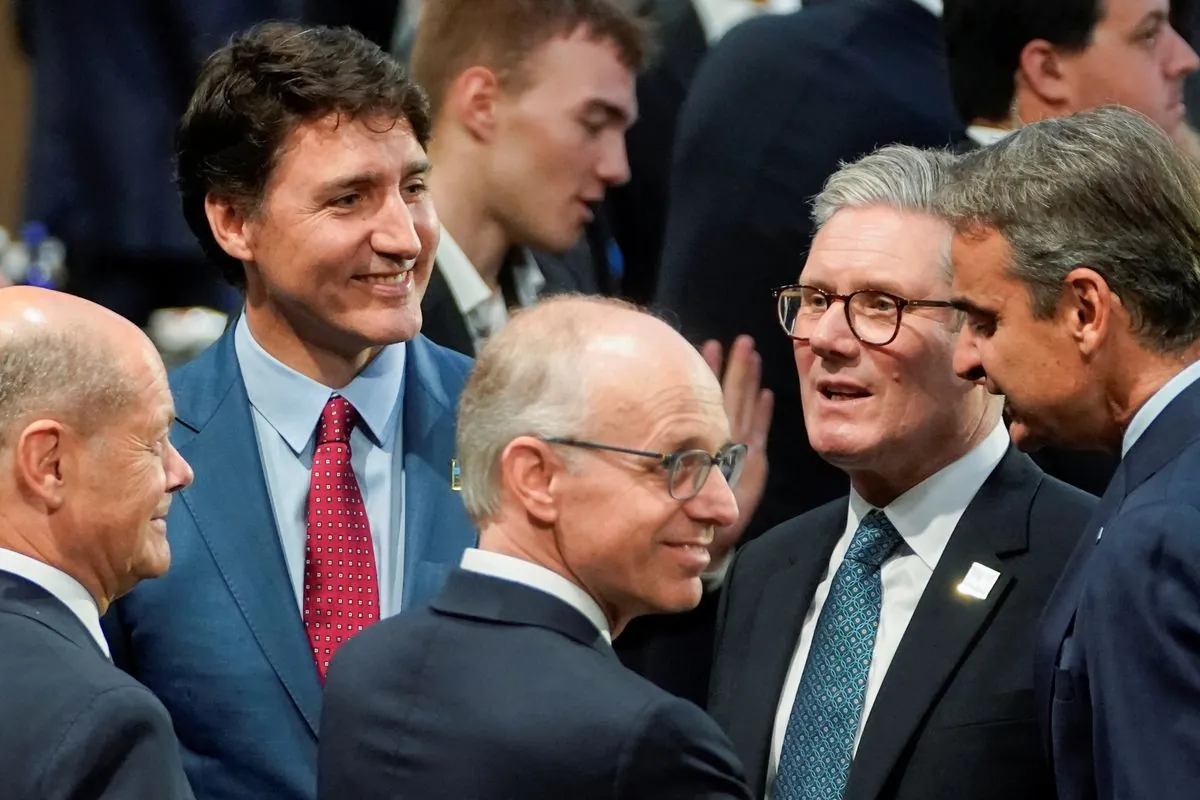Keir Starmer's strategy for reshaping Britain's relationship with the European Union appears to be taking a page from the EU's own playbook. The Labour leader's approach bears a striking resemblance to the gradual method employed by Brussels to integrate member states over decades.
The UK's journey with the EU has been complex and contentious. Britain joined the European Economic Community in 1973, and over the next 47 years, its relationship with the bloc evolved significantly. The process of European integration was often described as "salami-slicing," with sovereignty transferred bit by bit through successive treaties.
Starmer, who became Prime Minister in early July 2024, is now meeting German Chancellor Olaf Scholz for the fifth time in just over a month. This frequent engagement signals a clear intent to reshape UK-EU relations.
The Labour leader has stated, "We have a once-in-a-generation opportunity to reset our relationship with Europe and strive for genuine, ambitious partnerships." This language echoes the rhetoric used during the 2016 Brexit referendum, suggesting a significant shift in approach.
Nils Schmid, foreign affairs spokesman for Scholz's SPD, has indicated that both leaders are aligned on EU-UK relations. He mentioned plans for cooperation in various fields, including trade, student mobility, and defense. Notably, a youth mobility scheme is high on their agenda, potentially signaling the first step towards restoring free movement.
"There is a constant push by the German government to bring the UK closer to Europe and to facilitate cooperation between Great Britain and the EU in as many fields as possible, ranging from trade to student mobility rights to defence."
The proposed timeline for a new EU-UK treaty within six months, by February 2025, suggests a rapid pace of change. This could be followed by numerous sectoral agreements on common standards and approaches.
It's worth noting that the European Single Market, established in 1993, and the Schengen Agreement, signed in 1985, were key elements of EU integration that the UK partially opted out of during its membership. The current discussions may revisit some of these areas.
Critics argue that this gradual approach could lead to a de facto reversal of Brexit without explicit public consent. The composition of Starmer's administration, which includes figures who previously advocated for a second Brexit referendum, adds to these concerns.
However, the success of this strategy depends on public reception. A significant backlash could force Labour to reconsider its approach, especially if it threatens their electoral prospects. The response of pro-Brexit political parties, including a potential Conservative revival or collaboration with Reform UK, could also impact the trajectory of UK-EU relations.
As these developments unfold, the UK finds itself at a crossroads, balancing its post-Brexit identity with the pull of closer European ties. The coming months will be crucial in determining the future shape of Britain's relationship with the EU.
